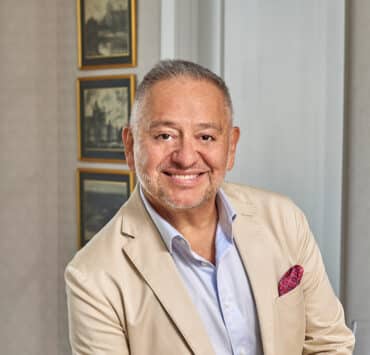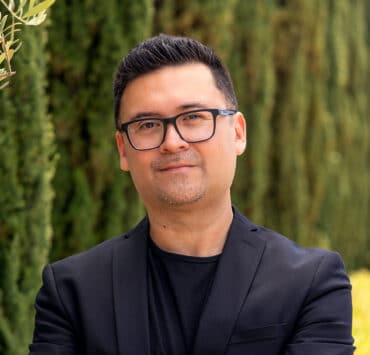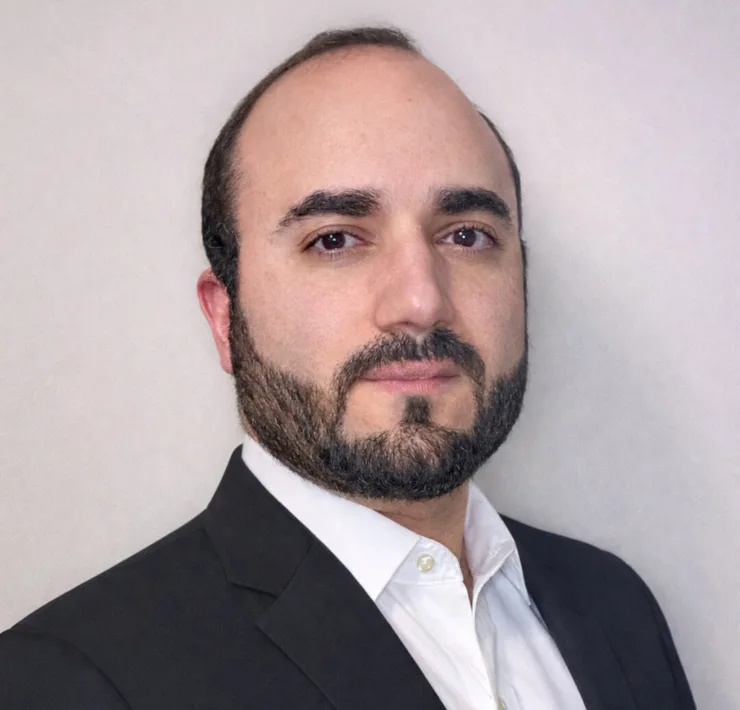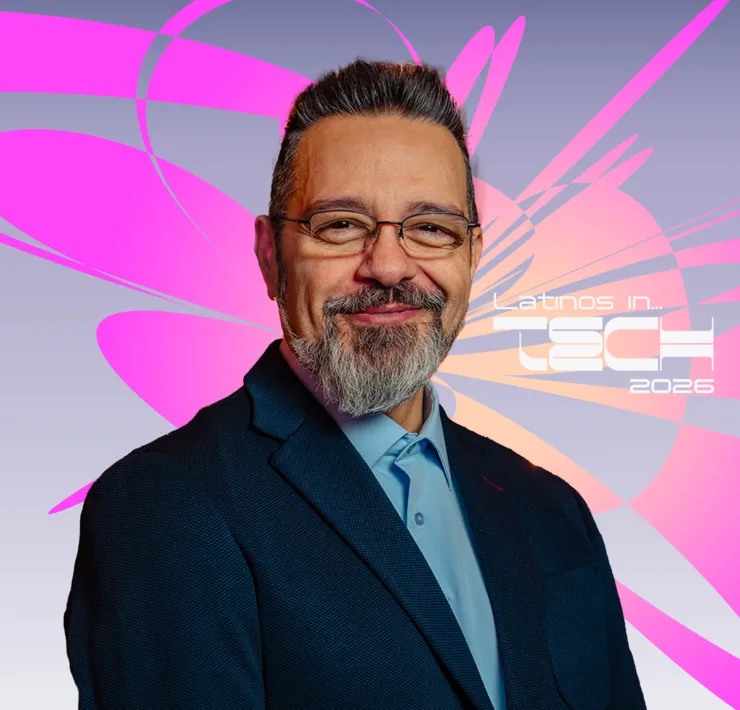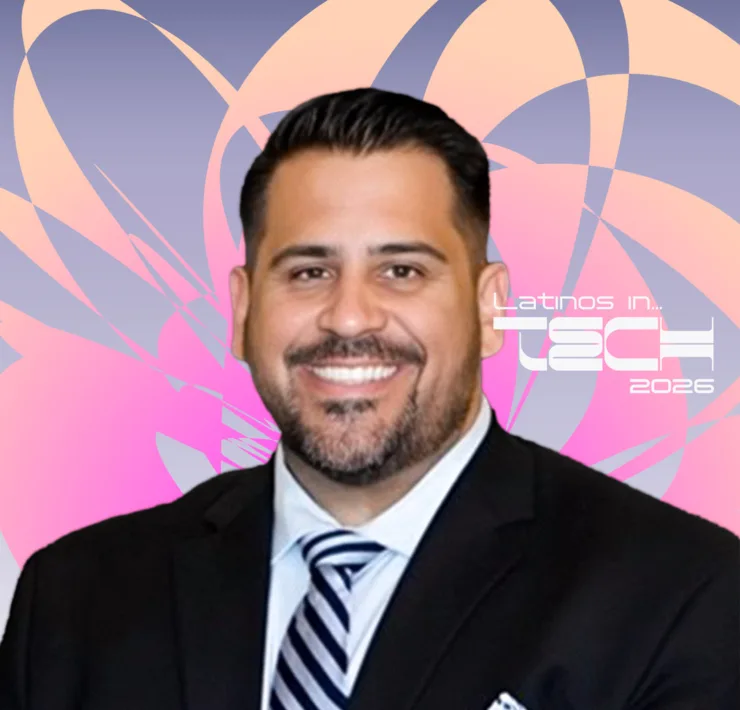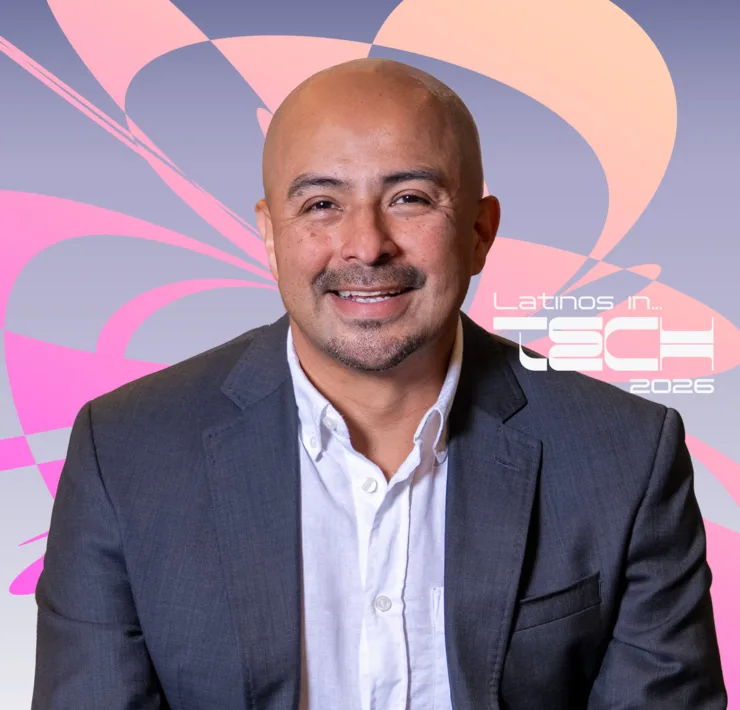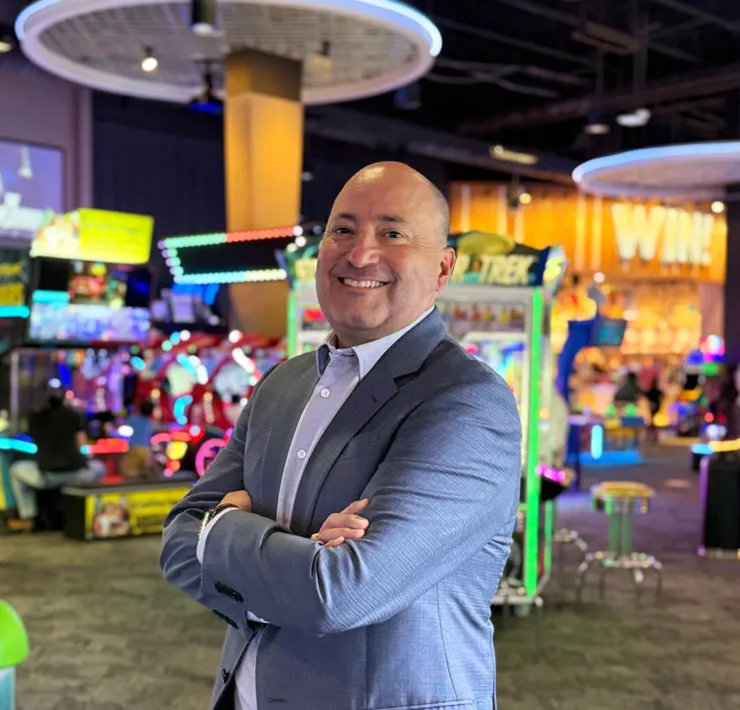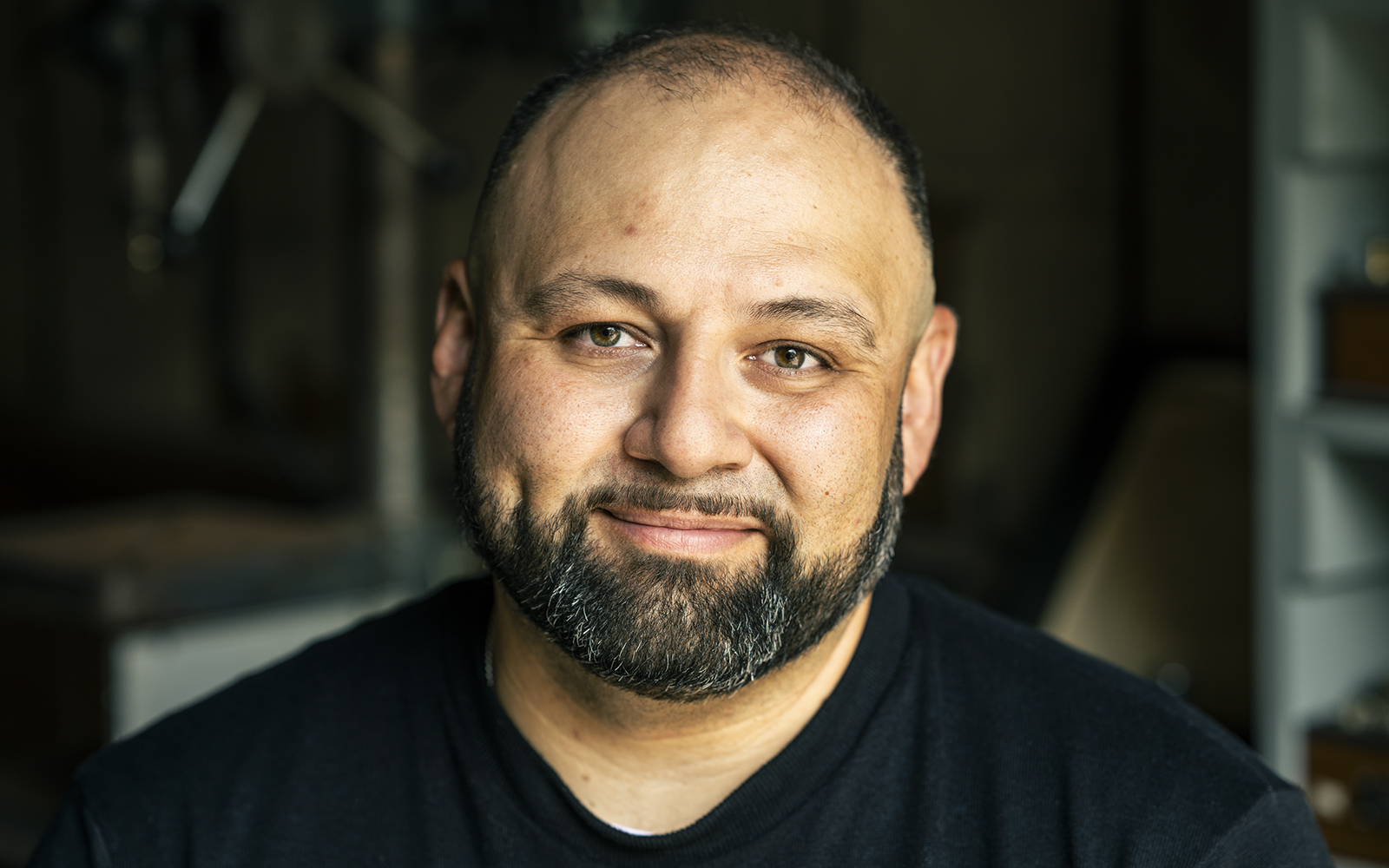
|
Getting your Trinity Audio player ready...
|
A few years ago, Carlos Quezada had a dream that he was being interviewed.
“I was sitting in a radio or podcast studio with a microphone in my face, talking about a book I had just written,” he recalls. “The title of the book came to me in the dream too. It was called the Immigrants Survival Guide to Silicon Valley.”
While he hadn’t written that book yet, the task was a logical next step for the vice president of customer experience strategy, automation, and enablement at Hewlett Packard Enterprise (HPE). The son of Mexican parents bounced between Mexico and the US during his adolescence before finally settling in the US when he was fourteen. He’d go from barely finishing high school and feeling like an imposter among his industry peers to becoming a decorated leader with over two decades of experience in start-ups, technology, customer strategy, and people leadership. He had an inspiring story to tell.
For Quezada, a man of faith, the dream writing a book was a sign. He was already sharing his wisdom with mentees, college students, and his team at HPE, but he knew that his story could have a broader reach.
“Immigrants share a lot of virtues [like a strong] work ethic, survival instincts, the hustle, the grit, but also the imposter syndrome and even a bit of a victim mentality once we’re here,” he says. “Having sat on a number of panels and mentoring a lot of people, I felt like there were a lot of reoccurring themes that we talk about. So, rather than responding to it on a one-on-one basis, I thought it would be best to share with the masses.”
He started writing, motivated to help young immigrants, college students, and early career folks wrestle with their realities and to inspire them to pursue their dreams. As Quezada continues to pen his magnum opus, he reflects on his journey and the lessons learned, and offers a career’s worth of advice.
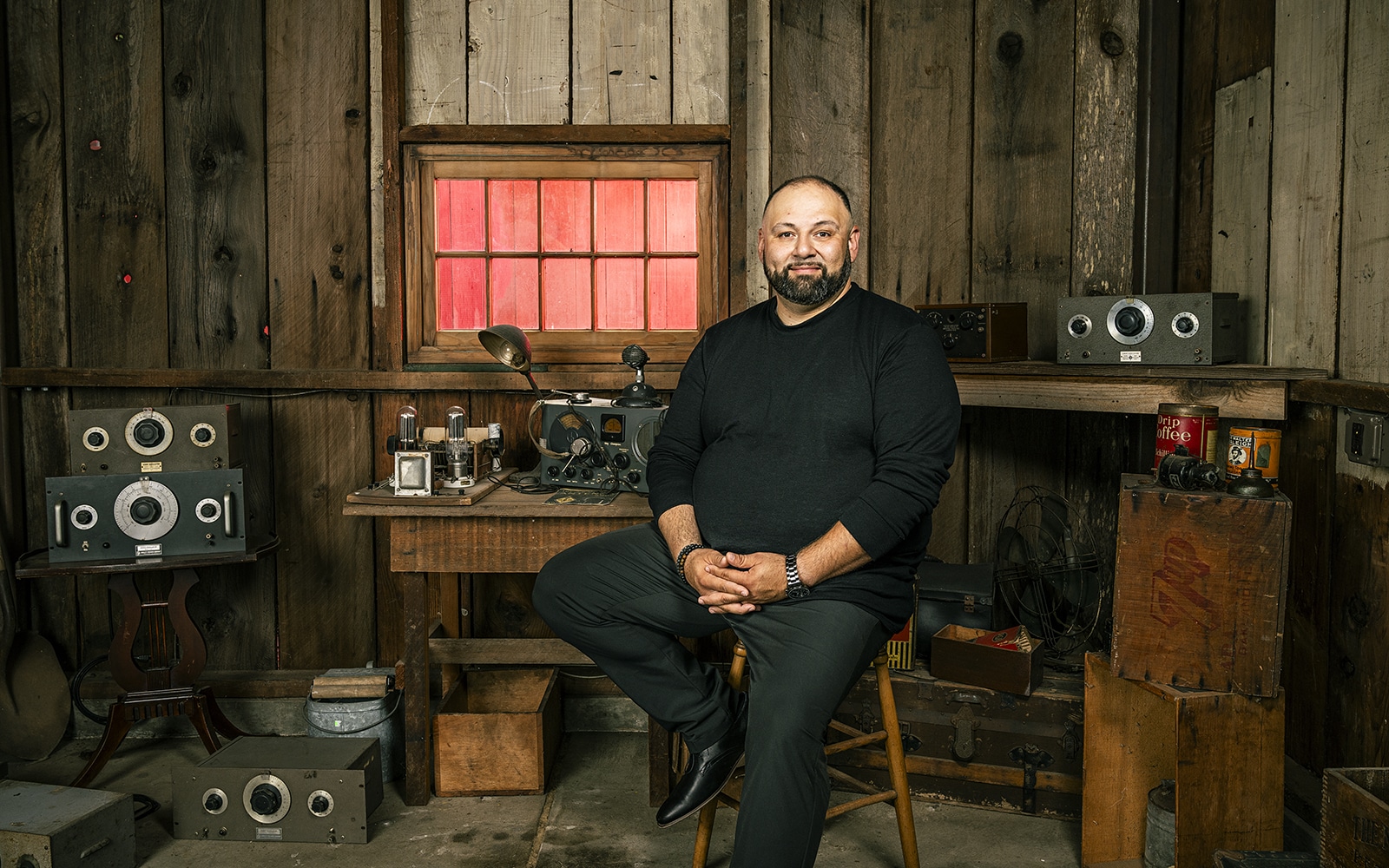
Humble Beginnings
Quezada came of age in a small farming community in Degollado in Jalisco, Mexico among hog farms and corn fields. Since his dad, a migrant farmer, often traveled to the US for work, he split his childhood between the two countries. At times, that made school a challenge.
“I really didn’t have a sense of belonging and I had to make new friends every time we moved,” the VP says.
High school wasn’t any easier. Navigating a new culture and language made it hard for Quezada to be successful. After failing a final requirement class his senior year, he couldn’t walk the graduation stage with his classmates that spring. The expression in his father’s eyes when he told him the news tore Quezada apart.
“The look of disappointment just killed me,” he recalls. “I recognized at that moment that this was why my parents came to the US, to give us better opportunity, and I felt like I failed them.”
Quezada committed to making it up to them, graduated in the summer, and set his eyes on college as a first-generation student. At first, he didn’t know what he wanted to pursue, but, ultimately, a cursory interest in computers lead him to a systems administration and networking degree at a local trade school.
“I feel fortunate because as a VP, I’ve had every job on the way here. So, when it’s time to make decisions, I can empathize with what I’m asking people to do and how realistic it is.”
Carlos Quezada
That education helped him snag a six-month contract at a tech company that was building out automation infrastructure. In that role, he let his curiosity guide him, often asking his colleagues how the systems and equipment worked. He also had a knack for connecting with others, including company leaders. When he found out that the CEO and vice president of engineering were traveling to Mexico City for an important meeting, he jokingly offered to translate for them. They took him up on it.
“The meeting was with the largest Mexican cellular carrier, Telcel, and when we got there, I actually took over and forgot to translate,” Quezada recalls. “I was just answering the questions directly because I knew them based on what I did for work.”
They walked out of the meeting with a provisional nationwide contract and worked with a start-up company that would help bringing cellular telemetry messaging to Mexico. When they got back to the states, the leaders hired him for a full-time role to help manage technical and business relationships with nationwide cellular carriers.
After a successful three years in that role, Quezada went on to serve in various engineering, product management, and customer support positions with other companies, each with increasing responsibility. He not only honed his technical abilities, but learned to take risks and appreciate the unique attributes he brought to the table, lessons he hopes to instill in future leaders.
“I always tell people not to underestimate the value of jobs that don’t make it on LinkedIn,” he says. “I get a lot of the customer service experience from the days working in a grocery store. I was a DJ, and, in that job, you’re the center of attention, so it helped me not be nervous during presentations. At the machine shop, I learned about process and flow.”
Quezada continues, “I feel fortunate because as a VP, I’ve held every job on the way here. So, when it’s time to make decisions, I can empathize with what I’m asking people to do and how realistic it is.”

Setting the Example
Today, Quezada is a vulnerable and empathetic leader who’s transforming his industry with a digital-first approach to customer success and customer experience at HPE, which has garnered its fair share of recognition and rewards. The most exciting part of that work is seeing the individuals on his team grow and evolve.
“None of the folks on my team have done this before, so everyone has a chance to bring innovation to the things we’re doing,” he explains. “Being able to empower my team to come up with these crazy ideas and actually make them happen excites me.”
Quezada also is the executive sponsor for HPE’s Hispanic employee resource group (ERG), known as JUNTOS. He also sits on the diversity equity and inclusion board with the company’s senior leaders and outside work and cofounded the UNIDOS ERG Collaborative, a platform for Latino ERG leaders to amplify their work and to network. Through those efforts, he coaches and mentors individuals across his company, in local communities, and across the world.
“One of the roles of the ERG is to go out and attract and retain people in our community, so we hold workshops for early career and college kids to get them to consider a career in tech,” he says. “We get them to recognize you don’t have to be an engineer to work in tech. There are plenty of roles, and me and my team are an example of that.”
“I always tell people not to underestimate the value of jobs that don’t make it on LinkedIn.”
Carlos Quezada
The VP continues, “A lot of the characteristics Hispanics bring to the table lends itself for this industry of customer success and customer experience. Latinos have a service mindset [with] a lot of charisma coupled with the willingness to generally want to help others. It’s these virtues to make them very successful in a customer facing kind of career.”
Young professionals aspiring to succeed in their careers should stay tuned for Quezada forthcoming book. But, until then, they should take his simple advice: don’t do it alone.
“I’m a big believer in the law of attraction,” he says. “Surround yourself with people that will help you grow and expand your mindset. These people will help you get to where you want to be. Go to industry events and nonprofit award banquets to network. When you share your goals with people, they will want to help. If you speak it, you will be it.”
